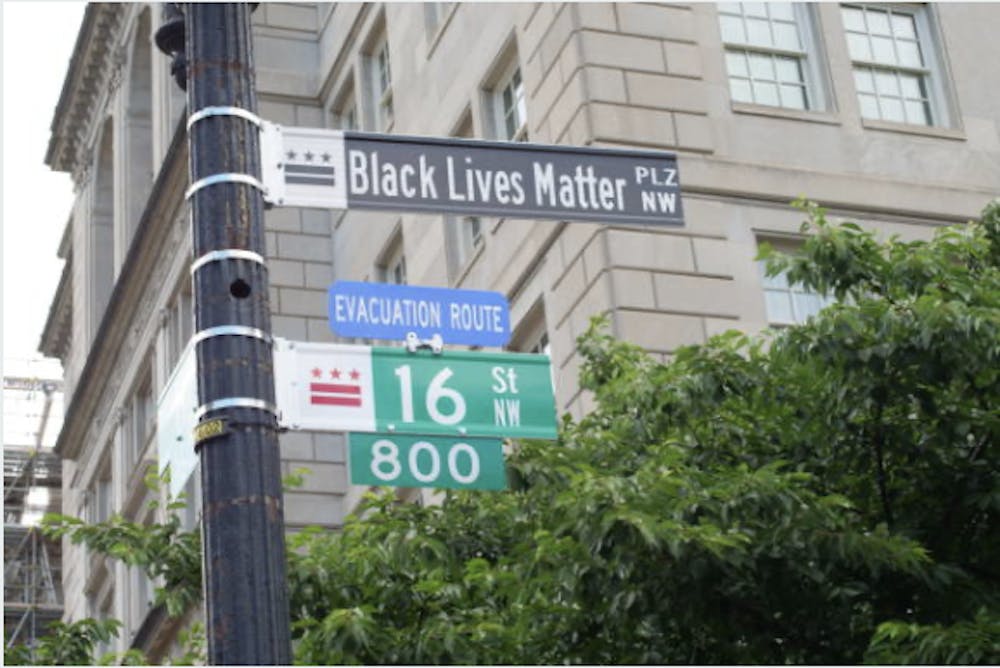In a world where attention is a form of currency, the idea of a symbol is a capitalistic dream. America appreciates trailblazers and change-makers, but not someone too “radical.” America idolizes “acceptable revolutionaries” such as Martin Luther King Jr. and his non-violent contributions to society, but honoring him starts and stops at MLK day. The problem with many Americans is that they hate to see actual progress for Black Americans.
It’s been over two years since Juneeteenth was declared federal holiday in the United States. Juneteenth marks the day that Major General Gordon Granger landed at Galveston, Texas with the news that the Civil War was over and that slavery had officially come to an end. For years, local DC activists like Opal Lee had worked tirelessly to have June 19,1865 recognized. It’s understandable why for many Black Americans, President Biden’s establishment of the holiday was considered a win. I can’t help but wonder who the true winners are. Now once a year people can take the opportunity to reflect and celebrate the significance of slaves finding out that they were free. It only took 156 years and worldwide outrage about the murder of George Floyd to do so.
As conversations about race became more prevalent, the discourse surrounding it has evolved. We’re creating a culture where it matters what your beliefs are and how you choose to act on them. In the wake of not just Floyd’s death but Breonna Taylor’s and that of countless others, larger conversations about racial justice and equality are taking place. Corporations have created entirely new departments and roles surrounding diversity and inclusion; conversations about defunding the police and policing reform took place, and the difference between performative activism and genuine allyship has become increasingly apparent. But are these changes enough? Why, in a country built on the idea of change, are we still forced to accept the bare minimum when it comes to social progress?
Many of these large-scale changes are nowhere near as significant as we deem them to be.
What we fail to recognise is that we’re so used to being given nothing that the tiniest amount of progress feels like a milestone. It’s not that the effort shelled out by us isn’t significant, it’s that when we’re finally past the point of negotiation, we’re given just enough to keep us in check. The change we’ve been waiting for looks like it might finally be happening and the alternative is nothing so we take it.
This, unfortunately, isn’t a new phenomenon. Storied American novelist Toni Morrison remarked that “the very serious function of racism is a distraction. It keeps you from doing your work. It keeps you explaining over and over again, your reason for being.”
If you take the time to look long enough at the diversity and inclusion departments or the policies passed by Congress and other legislative bodies, you’ll begin to see the cracks. You’ll realize that we accepted the band-aid solution, and we “solved” one issue in a sea of issues and failed to truly solve that one issue.
We’re constantly told that change takes time and maybe it does. However, if we’re forced to accept gradual change, then it has to be more than a means of appeasement when that change occurs. According to the Washington Post, since the deaths of Floyd and Taylor, more than 2,000 policing-related bills have been introduced across the country. In the years since their deaths, statistics show that Black people are still killed at disproportionate rates by law enforcement officers. The unfortunate truth is that we often hear the word ‘change’ and stop paying attention. And that’s all it takes. Mapping Police Violence, a non-profit organization that monitors police violence in America, recorded that Black people made up 26% of fatal police shootings in 2022, despite only making up 13% of the population. Black Americans got Juneteenth, and then we got the lesser-known, Safer America plan that talked about reform and proposed to fund an additional 100,000 police officers.
Non-performative allyship looks like having Black people in leadership and in various other roles within corporations. It looks like creating and implementing policies that don’t compromise on racial justice and it looks like caring about racial equality outside of Black History Month by donating to grassroots and bail funds. It looks like signing petitions that advance equality and calling and emailing your representatives when they try to pass legislation that doesn’t.
Black people need more than symbols, we need actual justice.



